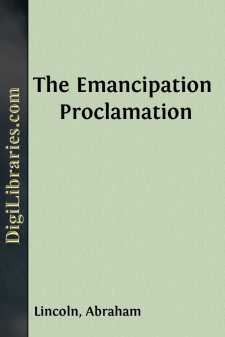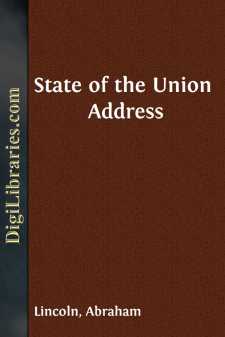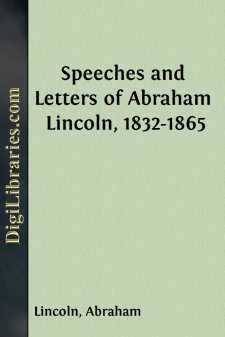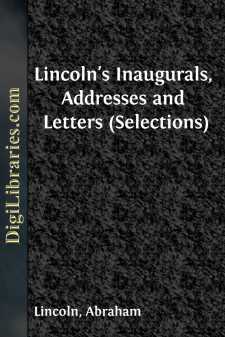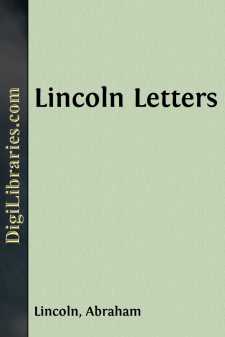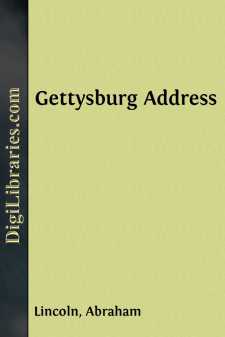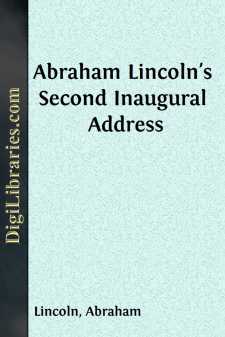Categories
- Antiques & Collectibles 13
- Architecture 36
- Art 48
- Bibles 22
- Biography & Autobiography 813
- Body, Mind & Spirit 142
- Business & Economics 28
- Children's Books 15
- Children's Fiction 12
- Computers 4
- Cooking 94
- Crafts & Hobbies 4
- Drama 346
- Education 46
- Family & Relationships 57
- Fiction 11828
- Games 19
- Gardening 17
- Health & Fitness 34
- History 1377
- House & Home 1
- Humor 147
- Juvenile Fiction 1873
- Juvenile Nonfiction 202
- Language Arts & Disciplines 88
- Law 16
- Literary Collections 686
- Literary Criticism 179
- Mathematics 13
- Medical 41
- Music 40
- Nature 179
- Non-Classifiable 1768
- Performing Arts 7
- Periodicals 1453
- Philosophy 64
- Photography 2
- Poetry 896
- Political Science 203
- Psychology 42
- Reference 154
- Religion 513
- Science 126
- Self-Help 84
- Social Science 81
- Sports & Recreation 34
- Study Aids 3
- Technology & Engineering 59
- Transportation 23
- Travel 463
- True Crime 29
Abraham Lincoln
Abraham Lincoln, the 16th President of the United States, is renowned for his leadership during the American Civil War and his efforts to abolish slavery, most notably through the Emancipation Proclamation in 1863. Besides his political achievements, Lincoln was also a skilled writer, known for his eloquent speeches and letters, including the iconic Gettysburg Address, which has become a seminal piece of American oratory. His writing often reflected his deep commitment to equality, democracy, and national unity, leaving a lasting impact on American literature and political thought.
Author's Books:
Sort by:
by:
Abraham Lincoln
A PROCLAMATION Whereas on the 22nd day of September, A.D. 1862, a proclamation was issued by the President of the United States, containing, among other things, the following, to wit: "That on the 1st day of January, A.D. 1863, all persons held as slaves within any State or designated part of a State the people whereof shall then be in rebellion against the United States shall be then,...
more...
by:
Abraham Lincoln
Fellow-Citizens of the Senate and House of Representatives: In the midst of unprecedented political troubles we have cause of great gratitude to God for unusual good health and most abundant harvests. You will not be surprised to learn that in the peculiar exigencies of the times our intercourse with foreign nations has been attended with profound solicitude, chiefly turning upon our own domestic...
more...
by:
Abraham Lincoln
INTRODUCTION No man since Washington has become to Americans so familiar or so beloved a figure as Abraham Lincoln. He is to them the representative and typical American, the man who best embodies the political ideals of the nation. He is typical in the fact that he sprang from the masses of the people, that he remained through his whole career a man of the people, that his chief desire was to be in...
more...
by:
Abraham Lincoln
INTRODUCTION The facts of Lincoln's early life are best stated in his own words, communicated in 1859[see Appendix] to Mr. J. W. Fell, of Bloomington, Illinois. Unlike many men who have risen from humble surroundings, Lincoln never boasted of his wonderful struggle with poverty. His nature had no room for the false pride of a Mr. Bounderby, even though the facts warranted the claim. Indeed, he...
more...
by:
Abraham Lincoln
Washington, Dec. 24th, 1848. My dear father:— Your letter of the 7th was received night before last. I very cheerfully send you the twenty dollars, which sum you say is necessary to save your land from sale. It is singular that you should have forgotten a judgment against you; and it is more singular that the plaintiff should have let you forget it so long, particularly as I suppose you have always...
more...
by:
Abraham Lincoln
Four score and seven years ago, our fathers brought forth upon this continent a new nation: conceived in liberty, and dedicated to the proposition that all men are created equal. Now we are engaged in a great civil war ... testing whether that nation, or any nation so conceived and so dedicated ... can long endure. We are met on a great battlefield of that war. We have come to dedicate a portion of...
more...
by:
Abraham Lincoln
Lincoln’s Second Inaugural Address March 4, 1865 Fellow countrymen: At this second appearing to take the oath of the presidential office, there is less occasion for an extended address than there was at the first. Then a statement, somewhat in detail, of a course to be pursued, seemed fitting and proper. Now, at the expiration of four years, during which public declarations have been constantly...
more...


